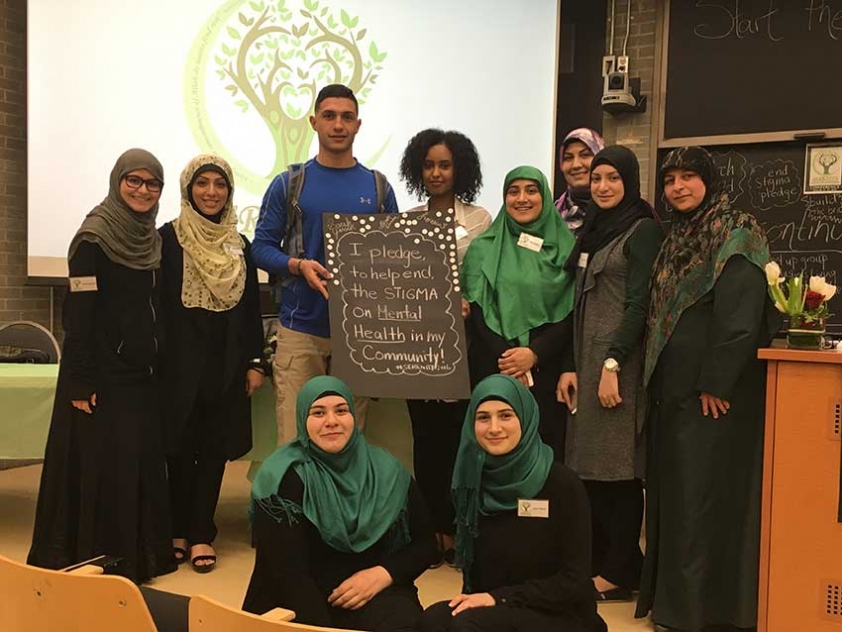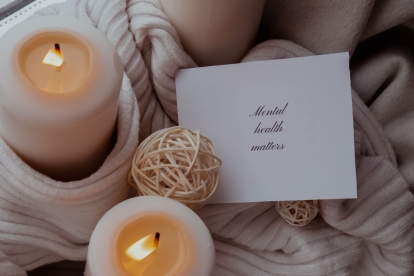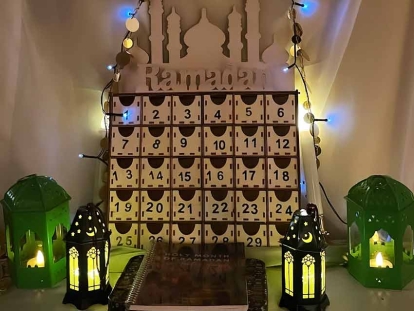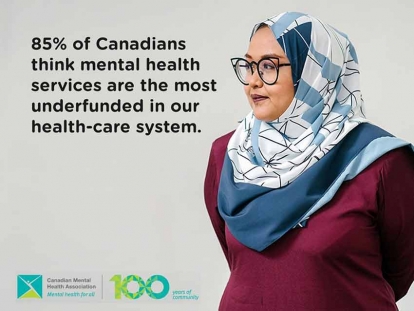 Serenity Conference organizers and speakers on May 22nd at Carleton University
Hadi Haidar
Serenity Conference organizers and speakers on May 22nd at Carleton University
Hadi Haidar
Jun
Serenity Conference on Mental Health Builds Bridges between Ottawa’s Muslim Communities
Written by Chelby DaigleSerenity Islamic Mental Health Awareness held its first conference from May 20th to 22nd at the Ahlul Bayt Centre and the Carleton University Campus.
Along with tackling an important but often taboo subject within Ottawa’s Muslim communities, mental illness, the conference also marked an unprecedented collaboration between members of Ottawa’s Sunni and Shia communities.
Although the Serenity Islamic Mental Health Awareness Initiative is open to all Muslims, the lead team comes from Ottawa’s Lebanese and Iraqi Shia Muslim communities. However, conference sponsors and speakers were recruited from both the Sunni and Shia Muslim communities and across ethno-cultural lines. This diversity was also reflected amongst conference participants.
The conference also was a female and youth led initiative which used some innovative techniques to raise awareness about the conference topics, such as including poetry by spoken word artists, and including Muslims currently living with mental illness as speakers and subject matter experts during the conference.
Event sponsors included Muslim social service organization Islam Care Centre/ Muslim Family Services and the Ahlul Bayt Centre along with several Ottawa Shia centres, Naseeha Muslim Youth Helpline from Toronto, as well as non-Muslim organizations such as Carleton University’s Health and Counselling Services and the Carleton University Graduate Students Association.
Prominent speakers from outside of Ottawa also presented at the conference such as American Nicole Correri, who has a Masters in Counselling, and is a respected international public speaker on the topic of Islamic issues including mental health. As well as Yemeni Canadian Mohammad Baobaid, the executive director of the Muslim Resource Centre for Social Support and Integration in London, Ontario and a family counsellor. During one of the conference workshops, he presented on another taboo topic within Muslim communities, family violence, from a mental health perspective.
Muslim Link was a media sponsor for the event along with CHIN Radio. Muslim Link’s Editor in Chief, Chelby Marie Daigle, who lives with a mental illness, also co-presented at the conference on the subject of suicide along with psychiatrist Leah Layman-Pleet who works at the Royal Ottawa Hospital, specializing in youth mental health.
Muslim Link interviewed event organizers, speakers, artists, volunteers, and participants about their take on this unique event and what they hope next year’s Serenity Conference can accomplish.
Housnah Gunny, Conference Speaker
Mauritian Canadian Housnah Gunny first wrote into Muslim Link anonymously about her recent journey with depression. She decided to speak out publicly about her experience for the first time on the first night of the Serenity Conference. She also volunteered to provide flower arrangements for the conference through her business Belle Roses Creations.
Housnah: As one of the speakers of the opening night of the ceremony, I felt blessed to work with the amazing team of sisters who share my calling to help our Muslim community address mental health through education and sharing the stories of people living with mental illness, like myself. It is still a stigma in our community. Being open to work with any community concerning this project, I'm happy that the Shia community welcomed me and other Sunni speakers to share our knowledge and experience. I have depression and I was able to talk with the attendees, it was a heart to heart talk and I received wonderful feedback about how some sisters and brothers at the event were moved by my journey with depression. Thank you/ Merci Team Serenity. You Rock!
Hadi Haidar, Conference Volunteer
Lebanese Hadi Haidar is actively involved in the Carleton University Ahlul Bayt Students Association (ABSA) and the Ahlul Bayt Centre. He is a student at Carleton University and he volunteered as an MC and photographer for the conference.
Hadi: The Serenity Conference felt like a long awaited and much needed for our community. Although our communities haven't jumped over the "taboo" barrier just yet, you could tell that there are many people in the community anxiously awaiting an opportunity to speak about mental illness and this conference provided that.
During the conference, I raised concerns about how youth in my community are often disconnected from mosques. I feel like it's very important to fix the disconnection problem in order to combat mental illness and promote strong mental health, among many other things. The reason for that is that many of us turn to faith to help strengthen our mental health but if there is a disconnect with the community, who do we build that faith with? Where can we get help? Who can we talk to? Many see the imams and leaders of the community as people that can be trusted and relied upon but it is difficult to use those resources to their full potential if there is that disconnect.
Haneen Alhassoun, Conference Artist
Palestinian Canadian Haneen Alhassoun is a spoken work poet and Carleton University student who is also a newly elected member of the executive of the Carleton University Muslim Students Association. She performed poetry at the conference’s opening night exploring her own struggles with mental health.
Haneen: Being given the opportunity to be part of the Serenity Conference was amazing. In all honesty, I was nervous about sharing poems about my mental health and personal struggles. The energy that I felt from audience members during my performance and the feedback I received afterwards was truly mind changing. It was humbling as well as eye opening to how important it is for me as an artist to go back and write more about my own feelings and not focus solely on social justice issues.
Another aspect I was nervous about was that I was a Sunni Muslim performing at an event that was mostly organized and attended by Shia Muslims. I even had comments from friends criticizing that I was performing for "a Shia event." I was very offended by these comments, because mental health does not discriminate and the Serenity Conference was for everyone. I felt very welcomed and respected by everyone at the conference, young and old. I hope to see this initiative expand and receive the support it needs from all the Muslim communities in Ottawa.
Jamaal Jackson Rogers, Conference Artist
Jamaican Canadian Jamaal Jackson Rogers is a spoken word artist who performed at the conference’s opening night.
Jamaal: I believe that given the first night of the conference was delivered in a "coffee house" format, that the addition of an artistic performance added to the three day schedule. It supported the programs intentions while allowing the audience to engage with the topic of mental health and wellness from not just a lecture, question and answer format, but with a subjective and opinionated format, as art tends to allow for such critical thought. I hoped to present a piece of poetry that was grounded in my own experience but that had elements of storytelling that could allow the listeners to grasp my message. By using storytelling and poetry, which in many cases overlap, I spoke of my struggle since the beginning of my life with mental health and how it shaped the person I am today. It was a way to explore the mechanisms of how mental illness can be debilitating not just to the individual who carries the diagnosis but also those who live and support the person with mental illness. I used performance to deliver the message and presented the piece with as minimal technique as possible so the allegory was clear, that though we may seem okay, many among us are not well, and that to combat the effects of our suffering, we must support each other and not judge one another.
Raysso Aden, Conference Speaker
Somali Canadian Raysoo Aden is a mental health advocate who spoke at the conference and has worked on projects within Ottawa’s Somali communities focused on raising awareness about mental health.
Raysso: My work in mental health advocacy has revolved around creating inclusive safe spaces for marginalized communities to come forward for support, share their experience, learn from their peers, and grow. The Serenity Islamic Mental Health Conference provided a much needed space for Muslims to gain knowledge about mental health from professional health care providers and more importantly hear firsthand accounts of living with a mental illness from Muslims. The discussions held during several workshops were moving, powerful, and ultimately necessary to challenge pejorative prejudices, damaging attitudes, and harmful words associated with mental illness. I believe that breaking the stigma of mental illness is a shared responsibility.
I am currently working on a pilot project with Ayan Yusuf, founder of A Ray of H.O.P.E. We aim to collect significant data pertaining to the way in which mental health and mental illness adversely affects the Somali-Canadian community. A summary of recommendations referencing the quantitative data will then be created in order for other organizations and community members to better understand the specificity of mental health issues that disadvantage the Somali-Canadian community when seeking mental health care. These organizations will include but are not limited to community centres, educational institutions, juvenile detention centres, healthcare institutions, and the Ottawa Police.
This initiative will provide us with a unique opportunity to not only raise awareness about mental health and de-stigmatize mental illness, but to also offer comprehensive solutions to local organizations in order to better service our Somali-Canadian community.
I sincerely thank the Serenity team for providing me with a platform to convey an important message: “You are more than your illness!"
Jessica Keats, Conference Speaker
Jessica Keats is a Yoga Instructor (Yoga with Jessica) who is very active in Ottawa’s Muslim community. She spoke at the Serenity Conference about the importance of healthy living and physical activity in addressing mental illness and maintaining mental health.
Jessica: This year’s Serenity Conference was a great step towards our Muslim community letting go of the stigma and judgement that has clouded discussion about mental illness in our community for so long. Each speaker and session reinforced the need for us to provide safety and understanding for these vulnerable members of our community. There is a great need for us to keep talking about mental illness and advocating for those struggling.
I was truly honoured to be asked to present about healthy living at the Serenity Conference. Globally, we are starting to broaden our conversation when talking about causative factors of mental illness to include how, where and why we live. From this perspective, we can begin to look at each person and their unique physical, mental, emotional and spiritual needs when talking about treatment and lifestyle. This is really important because we are whole beings, interconnected. When a problem starts it effects more than just the area the problem started in, it spreads. Whether we are living with mental illness, physical illness or injury it is so important to build a life that includes being realistic about our energy levels and what we can do, nourishing our spirituality, fuelling our bodies with foods that suit us, getting the sleep we need, daily physical activity, daily time in nature and time with family and friends.
Halima Ali, Conference Speaker
Somali Canadian Halima Ali spoke at the conference and works as a mental health case worker at Pinecrest-Queensway Community Health Centre.
Halima: The Conference organization, topics, facilitation and location was great. It was a new learning for me because it was the first time I encountered practicing Shia Muslims. There were about ten people who requested to meet with me after the workshop to provide information and referrals. This tells you that there is a need for confidential consultation on these issues within our communities.
Bashir Mohamed, Conference Participant
Somali Canadian Bashir Mohamed works with the John Howard Society of Ottawa supporting people who wish to rebuild their lives after time in prison. He participated in the conference and also hosted a table where participants could learn more about the John Howard Society’s services.
Bashir: I think the Serenity Conference was a great initiative. I think our community needs to learn more about the connection between mental health, particularly trauma and addictions, and criminal activity. I see that improving mental health insulates individuals from being involved in the criminal justice system.
Ahmed Hassan, Conference Participant
Egyptian Canadian Ahmed Hassan attended the conference and is the newly elected President of the Carleton University Muslim Students Association (CUMSA).
Ahmed: My experience at the Serenity Conference was really great. It is definitely important to focus on mental health awareness especially within the greater Muslim community where there is a stigma around the issue. As was presented in the conference, linking faith and mental health is important due to the complexity of mental health. The spiritual component of the healing process as well as the cultural realities within the Muslim community necessitate help tailored specifically to Muslim demographics. The MSA is planning to focus on this issue in the future and possibly collaborate with initiatives like Serenity to achieve that goal, attending this event was a great start.
Berak Hussain, Conference Coordinator
Iraqi Canadian Berak Hussain coordinated the conference and is a co-founder of Serenity Islamic Mental Health Awareness. She works as the International Student Counsellor at Carleton University.
Berak: It was the first time for us putting together a conference like this. As tiring as it was, we felt tireless because of the energy Allah gave us, Alhamduillah through the name of the Prophet Muhammad and Ahlul Bayt (AS).
A highlight for me of the conference was the diversity. The ethnic diversity was spectacular. The interest came from all members of Ottawa’s Muslim communities, including from Montreal and Toronto. We are so grateful for our sponsors who came from so many different communities, Shia, Sunni, non-Muslim. Mental health is a topic that breaches all boundaries and barriers. It touches everybody. Those who were interested in sponsoring valued that. Yes, we have differences, but we saw the conference as a space for exchange and understanding. All of us have something to contribute to the Muslim mental health movement.
Next year, I hope to have more people from each community attend. We know that some people who needed to be there, people who were struggling themselves with mental health issues, family issues, youth identity issues, didn’t come. I know people who are struggling with these issues but they didn’t attend. They need to be there next time. Hopefully we broke the ice this year so that more people feel comfortable talking about it and coming out next year.
The feedback we received was that people wanted more time for the workshops and discussion. They also wanted to go more in depth with certain topics. Since this year was a pilot we touched upon mental health with a 101 style. Serenity runs workshops throughout the year so we will be looking at exploring certain topics more in depth, like concurrent mental health issues and issues in the home and within families that are important to address from a mental health perspective.
We are open to working with whoever is passionate about Islamic mental health or anyone who is passionate about mental health and shares our values. They are free to get in touch with us if they want to discuss possible collaborations throughout the year or at next year’s conference. Just send us an email or message us on Facebook.
-
 Chelby Daigle and Dr. Leah Layman-Pleet
Chelby Daigle and Dr. Leah Layman-Pleet
Chelby Daigle and Dr. Leah Layman-Pleet
Chelby Daigle and Dr. Leah Layman-Pleet
-
 John Fraser, MPP for Ottawa-South
John Fraser, MPP for Ottawa-South
John Fraser, MPP for Ottawa-South
John Fraser, MPP for Ottawa-South
-
 Raysso Aden
Raysso Aden
Raysso Aden
Raysso Aden
-
 Islam Care's Omar Mahfoudi
Islam Care's Omar Mahfoudi
Islam Care's Omar Mahfoudi
Islam Care's Omar Mahfoudi
-
 Nicole Correri and Berak Hussain
Nicole Correri and Berak Hussain
Nicole Correri and Berak Hussain
Nicole Correri and Berak Hussain
-
 Jessica Keats
Jessica Keats
Jessica Keats
Jessica Keats
-
 Jamaal Rogers
Jamaal Rogers
Jamaal Rogers
Jamaal Rogers
-
 Housnah Gunny
Housnah Gunny
Housnah Gunny
Housnah Gunny
-
 Haneen Alhassoun
Haneen Alhassoun
Haneen Alhassoun
Haneen Alhassoun
-
 Halima Ali
Halima Ali
Halima Ali
Halima Ali
-
 Hadi Haidar
Hadi Haidar
Hadi Haidar
Hadi Haidar
https://muslimlink.ca/news/serenity-conference-on-mental-health-builds-bridges-between-ottawa-muslim-communities#sigProId4252b89e11
This article was produced exclusively for Muslim Link and should not be copied without prior permission from the site. For permission, please write to info@muslimlink.ca.
















